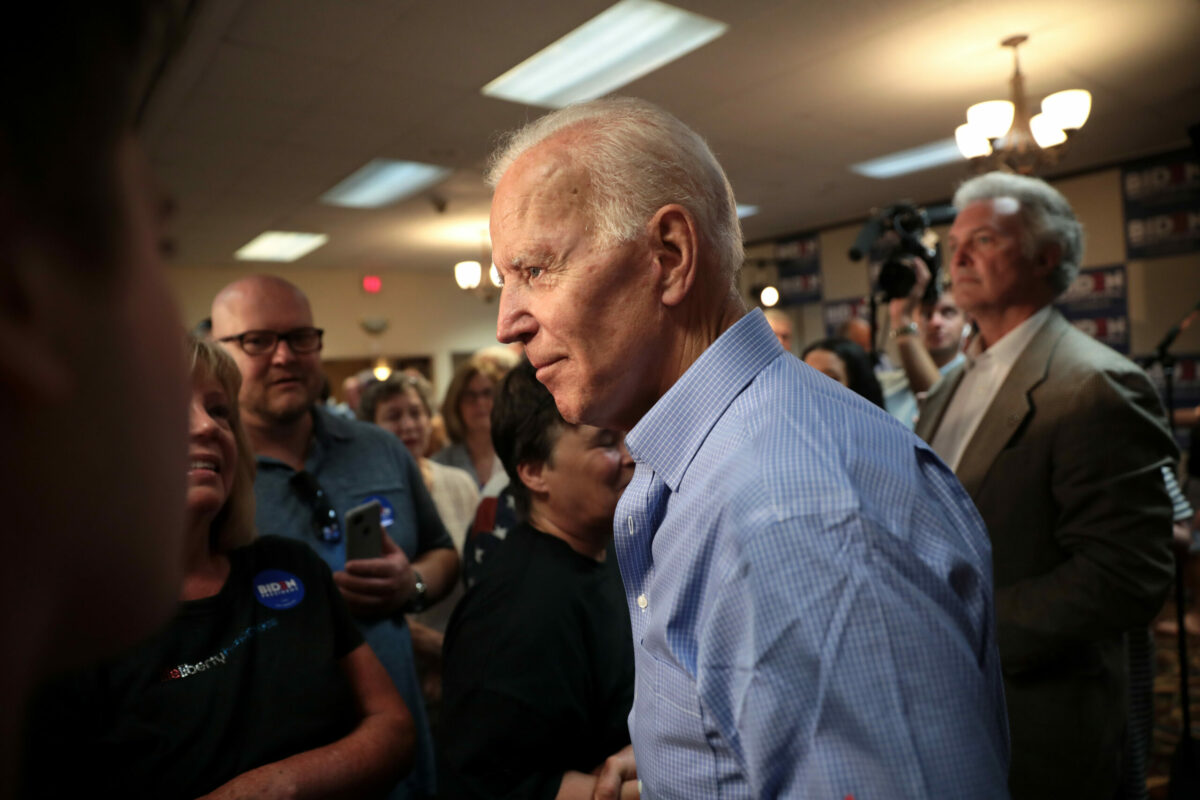In his address to Congress on Wednesday, President Joe Biden emphasized the necessity of making historic investments in America’s future lest the nation be outpaced by other international superpowers such as China.
“We can’t be so busy competing with each other that we forget the competition is with the rest of the world to win the 21st century,” Biden told Americans. “To win that competition for the future, we also need to make a once-in-a-generation investment in our families, in our children.”
The federal government, he noted, has given life to some of the nation’s and the world’s greatest advancements, such as putting a man on the moon and developing life-saving vaccines.
“These are the investments we made together as one country, and investments that only the government was in a position to make,” Biden said. “Time and again, they propel us into the future.”
In that vein, Biden touted his $2.3 trillion jobs plan as “a once-in-a-generation investment” and “a blue-collar blueprint to build America.” The president also scorched the cloud of Reaganism that has hung over the federal government since the ’80s.
“My fellow Americans, trickle-down—trickle-down economics has never worked and it’s time to grow the economy from the bottom and the middle out,” he said.
Even a decade ago, it would have been almost impossible to imagine any president making such a bold case for the role of government in American life. But one term of GOP rule and Republicans’ unimaginably deadly incompetence appears to have cured much of the public of the notion that we don’t need each other and we surely don’t need the help of a functional federal government.
By last fall, Gallup had already seen a major uptick in Americans who said they wanted government to help solve the nation’s problems. For the first time in nearly three decades of polling, a majority embraced that idea, with 54% saying they wanted more government versus 41% who thought the government was doing too much. The partisan breakdown of people embracing a more active government was 83% of Democrats, 56% of independents, and 22% of Republicans.

Gallup noted the embrace of government had risen 7 points since the previous year, before the start of the pandemic.
“Democrats and independents both show double-digit gains in favoring a more active government role from last year, while Republicans’ views are unchanged,” Gallup wrote last September. “The latest 61-point gap between Democrats and Republicans is the highest on record, although it is similar to differences of 60 points in 2016 and 58 points in 2011.”
The only other time support for bigger government in Gallup’s poll approached a majority was in the immediate aftermath of 9/11.
But as the Washington Post‘s Aaron Blake notes, recent NBC News polling on the same topic showed support for more government had been steadily growing over the last decade. NBC’s top lines this month were very similar to Gallup’s from last fall, with 55% saying the government should do more while 41% said it was doing too many things. But NBC surveys showed support for more government had been polling in the mid-50s or higher since April of 2017, whereas that sentiment was hovering around 50% closer to a decade ago (June/2013: 48%; June/2012: 49%; June/2011: 51%).
While Gallup’s polling also shows an upward trend over the last decade in those wanting a bigger role for government, it also suggests the feeling accelerated during the pandemic. But whichever way you slice it, Americans—Democrats and independents, in particular—want more government, not less.
So President Biden isn’t so much selling the nation on the need for a bigger role for the federal government; rather he’s reflecting the desire for more government and meeting a need that already existed.
This article first appeared at Daily Kos and is republished with permission.
